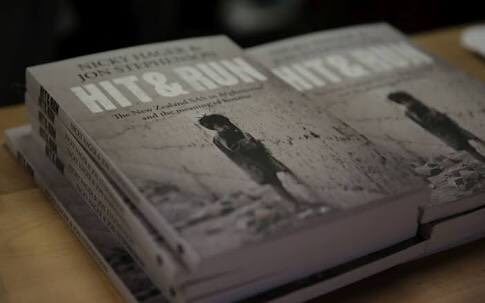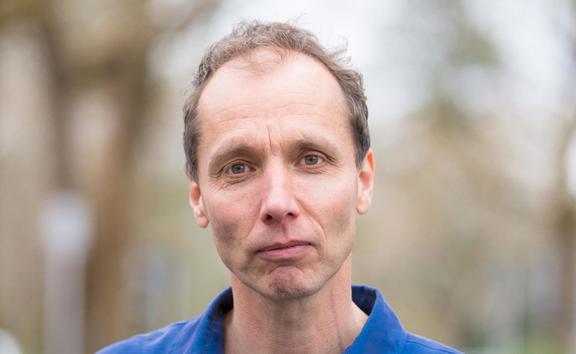Seeing that you are no longer allowed to express your opinions about climate change onStuff (unless you are a fawning believer, that is), I thought maybe you would like the opportunity to have your say on some of their climate change articles on Whaleoilinstead. quote.

quote.
[Mike] Smith, the activist, is now in charge of climate change policy for the high profile Iwi Leaders Group. end quote.
Well, we are off to a cracking start. We all know how level-headed and objective the average activist is. quote.
He says Māori, in particular, are at greater risk from the effects of climate change.
“We’re super vulnerable, like we are to anything,” Smith says.
“When it comes to climate change it’s like the poorest people in the world are going to be hit the hardest first and that’s a lot of us.” end quote.
I think the climate mantra is that, in general, the poor on the planet will be most affected – like those who live in the Bay of Bengal or Banda Ache in Indonesia. I don’t think the climate dogmatists meant Onehunga or Upper Hutt somehow. quote.
“It can be quite overwhelming the global climate change issues,” says Ōtaki resident and environmental scientist Aroha Spinks.
“To see those prediction models of how much water was going to be along that coastline was a big eye opener,” says Spinks.
“I’m sure some people got a bit of shock to see how much of that coastline could potentially be underwater.” end quote.
Or then again, it might not. quote.
Urupā, Māori burial sites, are common along New Zealand’s coastline and could soon become submerged.
“For some hapū and iwi there is a real pressing need to act to move tūpāpaku (corpses) to higher ground,” says Niwa research scientist Dr Darren King. end quote.
Forgive me. (Shakes head.) I thought we were all going to be 20 feet underwater in the next two years. If moving corpses is the biggest issue, well… sorry. quote.
“The climate change challenge for Māori society is about sustainable living arrangements and development, as much as it is about natural hazards management such as risks associated with flooding, storms and coastal erosion,” [King] says. end quote.
Not about maintaining your traditions then? quote.
A major challenge for Māori communities is how they will pay for any necessary physical adaptations. end quote.
How about using some of that Treaty settlement money that has been paid in compensation to Maori over the last 30 or so years? Just a thought. quote.
For well-off households and communities, the costs of adaptation will be manageable. But many Māori communities struggle to survive in the present let alone thinking about what needs to be done to adapt to, and help reduce climate change, says Dr Rhys Jones, a public health medicine specialist.
“A lot of people talk about climate change as a threat multiplier for people who are also facing disadvantages or poor health, it exacerbates those threats,” Jones says. end quote.
So… if we have money, we’ll be okay? So we are not going to be 20 feet underwater in the next two years then? Or is it just the poor that will be? quote.
Substandard housing is an issue for all New Zealanders especially during an extreme weather event. But many of those living in poor housing are Māori, says Jones, who represents over 600 health professionals in Ora Taiao, the Climate and Health Council.
“It’s not just the immediate event, it’s the period after; washed out roads, power out, no water. There are huge risks to health as well, if they can’t access water and can’t get to health services.” end quote.
A lot of these problems can be remedied, at least partially, by local councils taking steps to improve their floodwater management. I did not realise that weather was racist. People in better housing can still suffer the effects of floods. quote.
Smith is up for the challenge but is concerned others aren’t.
“We’ve got ten years to get our emissions down. We’ve got to shift public opinion and support governments that are prepared to do the right thing even if it’s going to hurt.” end quote.
Even if it is true that we have 10 years to get emissions down (isn’t it funny how it has been 10 years since about 2002? Shouldn’t we all be 20 feet underwater already?), there is just about nothing that little ol’ New Zealand can do about it. Unless the big emitters start to pull their weight, we will still be 20 feet underwater… in 10 years time.
The article states that Maori will be more affected than other New Zealanders because they live in poor housing and need to move their corpses. Excuse me making light of it, but nothing in this article makes the future seem very dire, for Maori or for anyone else.
And Stuff does not allow anything other than sycophantic comments on an article like this?
Stuff needs a new logo.
How about this one from the awesome Boondecker?

Says it all really.



 Photo: supplied
Photo: supplied
 Nicky Hager. Photo: Vice
Nicky Hager. Photo: Vice






